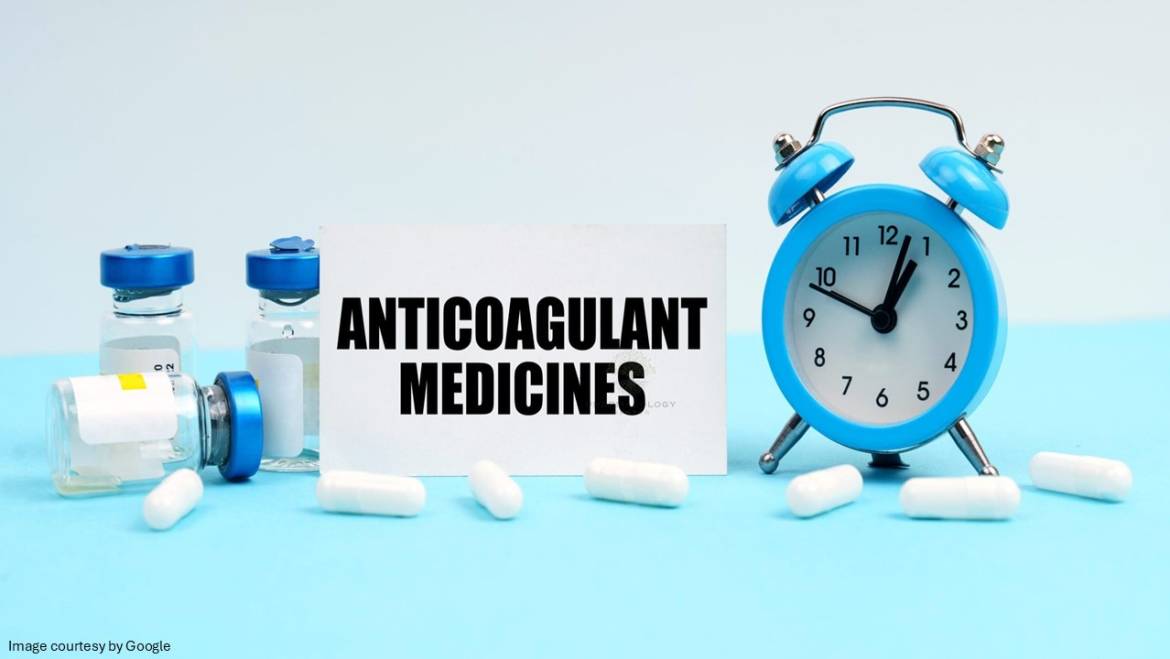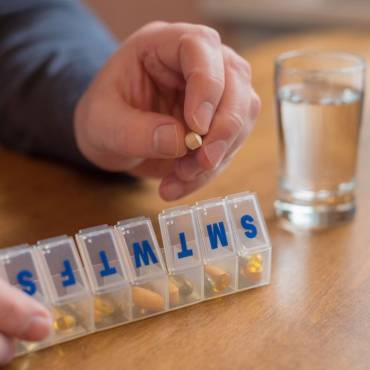Blood coagulation (also referred to as blood clotting) is one of the common issues that results in heart-related serious problems like stroke and attack. This blog is for those who may be struggling to know how to reduce blood clots.
How to reduce risk of blood clots?Reducing the risk of blood clots requires a doctor consultation, following his advice, and making some lifestyle modifications to prevent blood clots.
A blood clot in the veins may cause DVT or deep vein thrombosis and other serious problems such as pulmonary embolism, etc. The blood clot blocks blood vessels (an artery or a vein), and as a result, blood and oxygen are prevented from reaching a part of your body. There are several treatment options available to reduce blood clotting, and anticoagulants, also known as blood clotting drugs, are one of the most popular treatment options for blood coagulation. There are several blood coagulant medicines available, and the most common of them are Warfarin and Heparin.
Visit a doctor to know the blood clotting medication that suits your condition.
Working of the drug anticoagulants:
The anticoagulants work by interfering with the chemicals required by blood clotting factors for the blood clotting process. Warfarin and other anticoagulants, such as acenocoumarol and phenindione, work by blocking the production of Vitamin K, which is required for certain blood clotting factors. The medicines take at least two or three days to work fully.
Other famous anticoagulants are:
-
- Dabigatran
- Apixaban
- Rivaroxaban, etc.
Cases of anticoagulant use:
If you already have a blood clot, anticoagulants may be prescribed to reduce the risk of the clot growing larger. It is also noted that a person is at risk of developing a blood clot. The following cases of patients are subjected to anticoagulants:
-
- People with fast and irregular heartbeat, also known as atrial fibrillation. A mechanical heart valve.
- People with severe heart infections are known as endocarditis.
- People who have a partially opened valve in the heart or mitral stenosis
- Patients with blood disorders that are supposed to change the nature of blood clots
- People who had a replacement hip or knee surgery.

Blood clotting treatment using anticoagulants:
Heparin: Heparin is a fast-acting blood coagulant. It is administered by a needle inserted into your vein (IV) or an injection under your skin. It acts very quickly if administered intravenously. Heparin is inexpensive and rapidly enters the bloodstream to thin the blood. As soon as the drip is removed, heparin is also discontinued.
Warfarin: it is currently the most prescribed blood-clotting medicine. It is a long-term anticoagulant meant for blood thinning. Heparin is for the short term, and warfarin is taken for the long term. The level of warfarin in the blood must reach a particular level till it starts acting in the blood. The doctor may prescribe you warfarin along with heparin to make it reach a certain level. It is also inexpensive and comes in pill form.
New Anticoagulant or Anti-Clotting Medications
The USFDA, also known as the United States Food and Drug Administration, approves several new anticoagulant drugs and medications.
These drugs are safe, and doctors recommend them for patients who are suffering from atrial fibrillation or Afib. Here are such new Anticoagulating drugs:
-
- Apixaban (Eliquis)
- Dabigatran (Pradaxa)
- Rivaroxaban (Xarelto)
The drugs that are proven safe for the treatment of DVT and Pulmonary embolism are:
-
- Rivaroxaban
- Apixaban
- Dabigatran (Pradaxa)
These drugs are expensive, but they are safer than other anticoagulants. These drugs have fewer drug/herbal interactions, fewer fatal bleeding events, and less need for frequent lab monitoring. These medicines act very quickly and do not require overlapping with heparin to work. Along with these new drugs, many supplements that reduce blood clotting are also available on the market. Consult your doctor to learn the best anticoagulant medicine and supplements that suit you.
Also Read: 8 Amazing uses of cucumbers in your diet



